A collaboration with the Missouri Department of Conservation unites Southeast Correctional Center residents and families for a fun-filled morning of fishing activities.
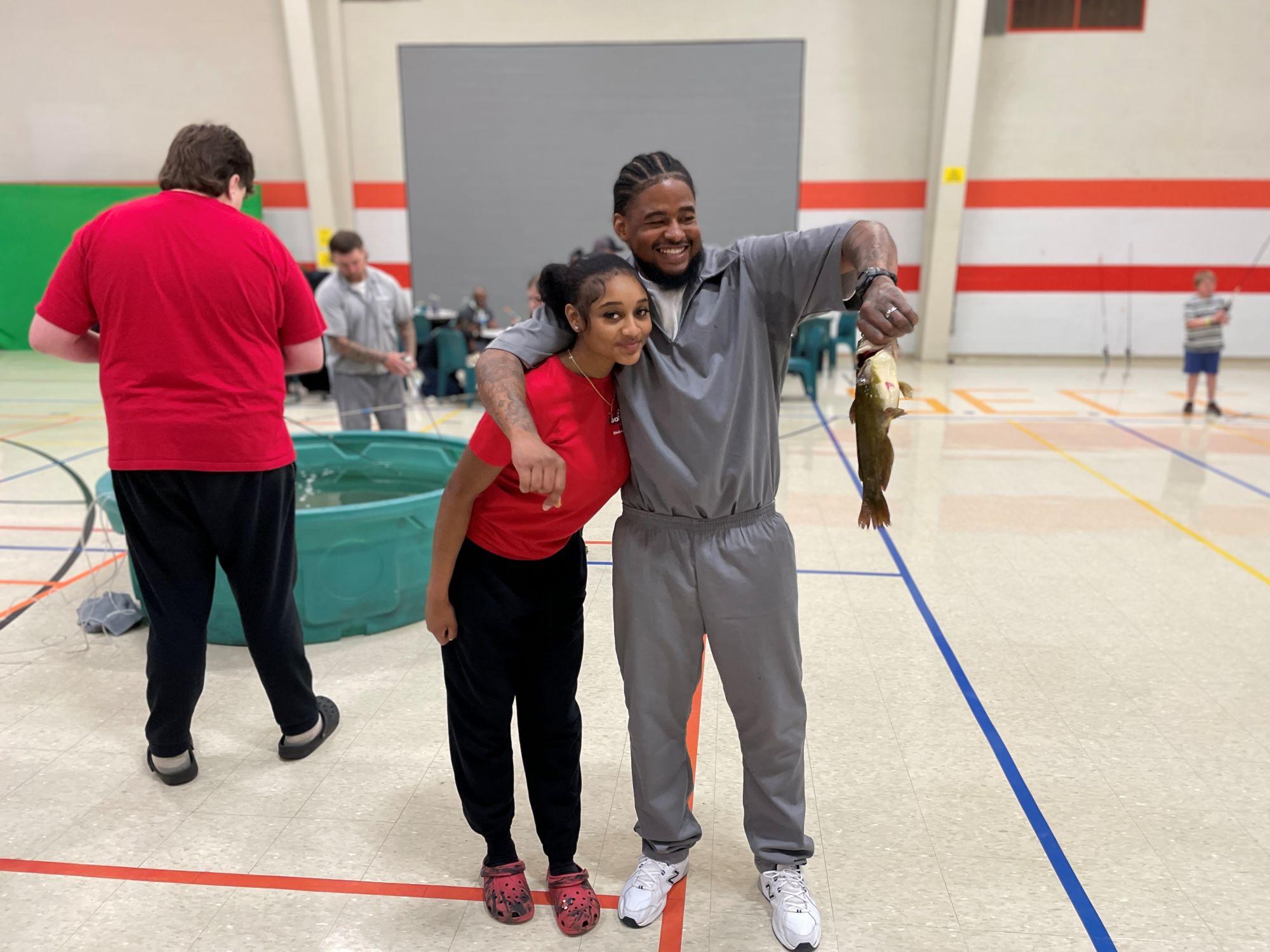
Story by Marcus Wilkins
Zya Williams squinted through the murky water at a bullhead catfish encircling a hooked nightcrawler. With an expert flutter of her wrist, the bait wriggled and the whiskered predator snapped up its prey.
Although Williams is a seasoned angler (for a kid), the experience of casting her line into a 300-gallon tank on a gymnasium floor was a bit different from fishing in the lakes back home in Lawrence, Kansas.
“Just be patient and quiet,” Williams said. “That’s my strategy. Grandpa is following my lead, though, because he hasn’t caught a thing.”
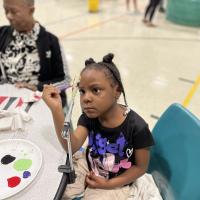
“Grandpa” is Charles Samuel, one of 13 Southeast Correctional Center (SECC) residents participating in the first-ever Fish With the Family initiative. A partnership between the Missouri Department of Conservation (MDC) and Missouri Department of Corrections (MODOC), the indoor event featured four tanks filled with native Missouri species, a “Backyard Bass” casting game for children to practice reeling in plastic fish and a craft area where families painted usable lures with colorful acrylic paint.
“It’s a beautiful thing to be with your daughter and grandbabies,” said Samuel, beaming. “It gives you a touch of the free world and a chance to spend quality time together outside of the visiting room. It gives you hope.”
Casting Connections
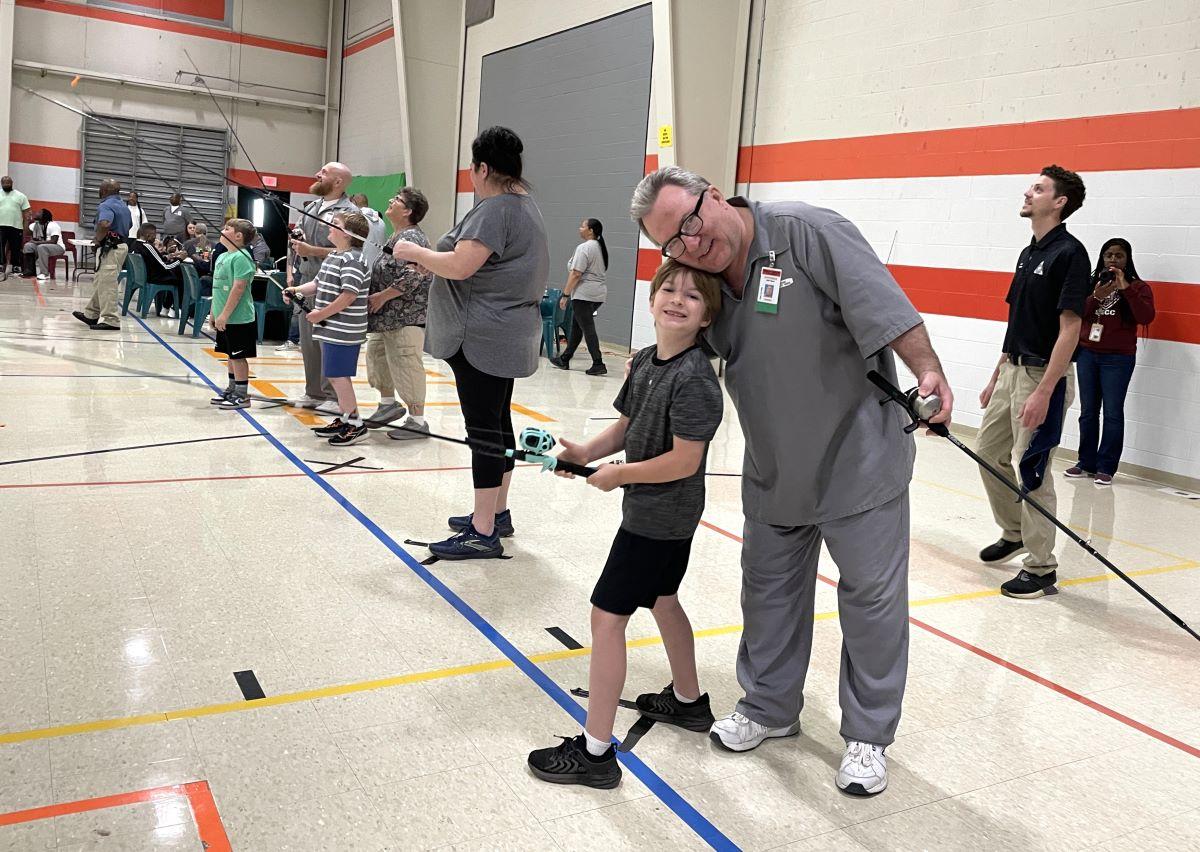
About 50 family members and more than 20 children rotated through the stations where conservation representatives and MODOC staff were on hand to guide participants. Some, including resident Mitchell Martin, who grew up fishing in Mexico, Missouri, claimed to need little instruction — at first.
“It’s all bravado, though,” said Martin, whose wife, stepson, daughter and grandson were in attendance. “I keep saying it’s a good thing we’re not fishing for our food, or we’d be in trouble!”
Lines that Bind
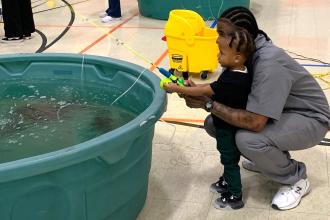
For a few years, department leaders had tossed around the idea of organizing an opportunity for Missouri kids to go fishing with their incarcerated dads but ran into logistical obstacles. The MDC initiated this project, proposing the trio of activities — two of which (Backyard Bass and lure painting) the department had hosted at various outreach events around the state. The tanks filled with fish from the Show-Me State, however, were something new entirely.
“It was a bit of a challenge bringing in these fish from the wild and making sure they stay alive without getting so stressed that they won’t bite the hook,” said Salvador Mondragon, MDC fisheries biologist. “I do a lot of fishing clinics at community ponds and lakes across the region, but this is a little different. But it will probably be one of the most rewarding experiences of the year because we get to witness something new and get families involved with the residents of the facility.”
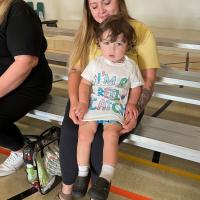
As the scattered bursts of laughter and cheers filled the gym to its rafters, several MODOC staff soaked up the optimism while visiting with residents and co-workers. Dads posed with daughters triumphantly displaying their catch of the day (all fish were returned to the water, of course), while nearby multi-generational families created brightly colored lures sure to entice future fish.
“This event is a two-sided coin,” said Steve Crater, SECC case manager. “For one, residents get to see their family and see what they’re missing. But it also allows the family to witness that our institutions aren’t about putting people in cells and locking them away. They’re about getting people education or learning skills so when you do get out, you’re successful.”
MODOC and MDC leaders alike hope to see the partnership and initiative replicated at other institutions throughout the state.
“These guys are working on a path of rehabilitation, and we know how important family is to that process,” said Gregory Hancock, SECC warden. “And the effect it has on their children is profound for fathers to be involved in their lives. I’m hoping this helps better bridge a gap with our community and helps these guys reconnect with their families in a way that can’t happen with a simple visitation.”
